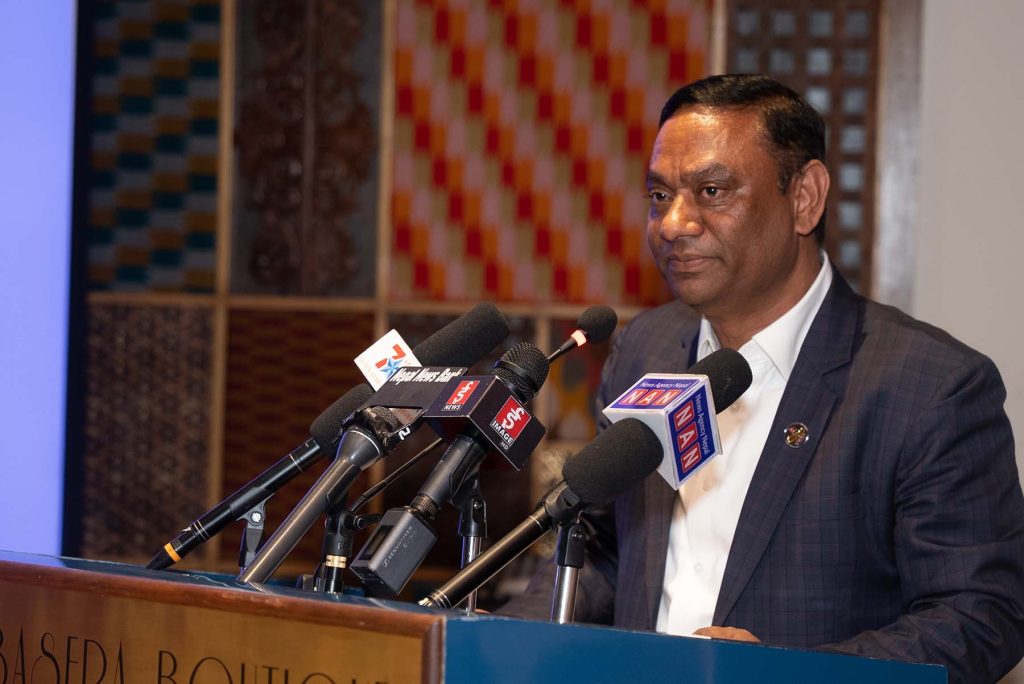
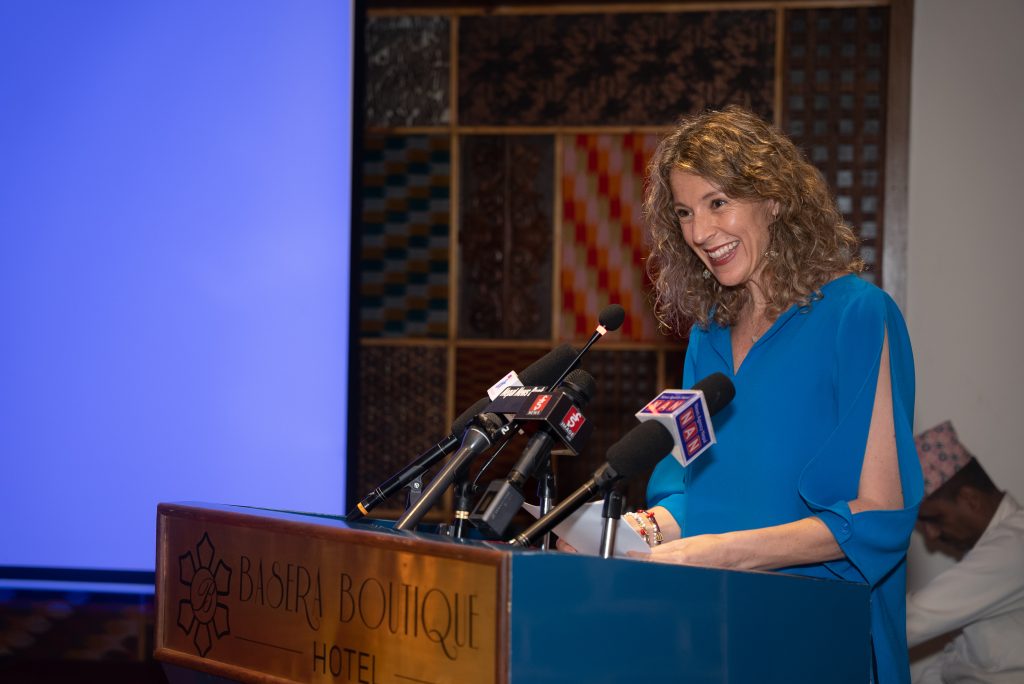
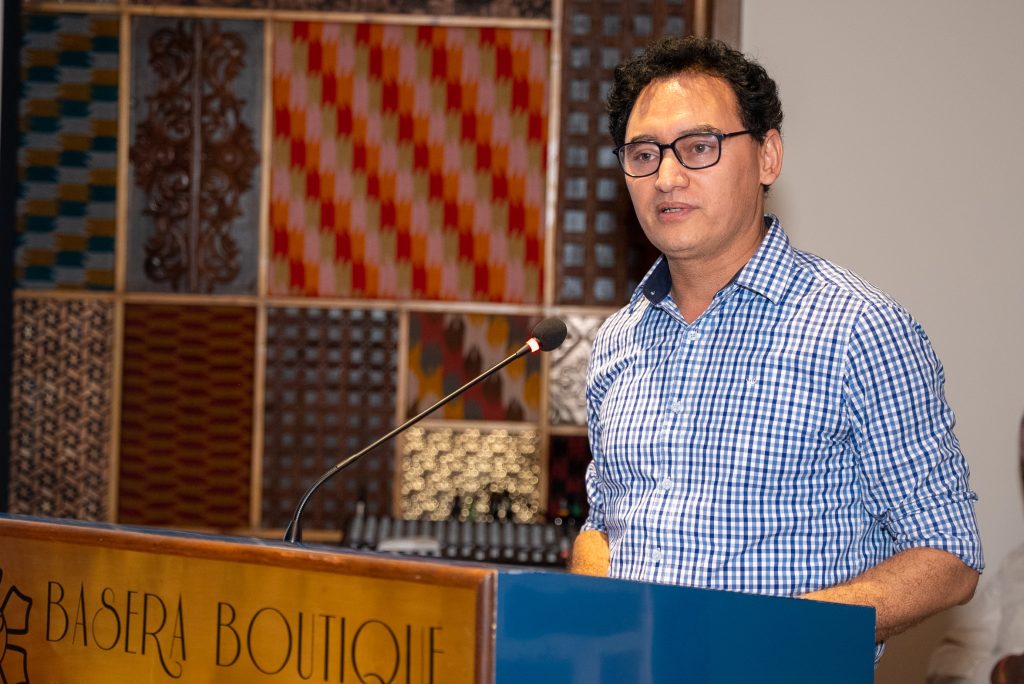
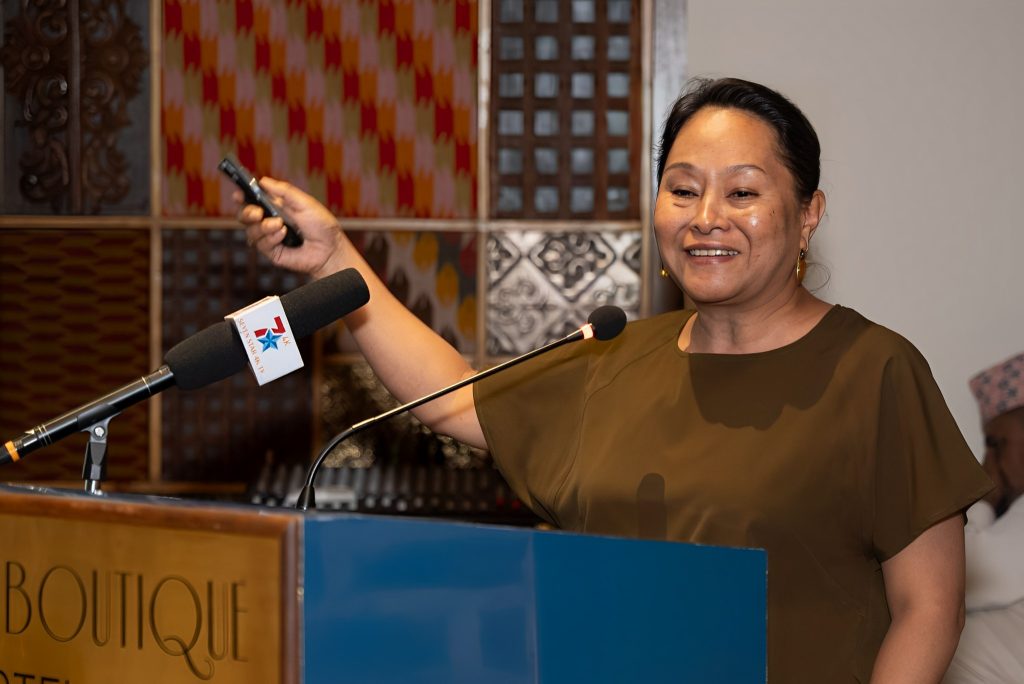
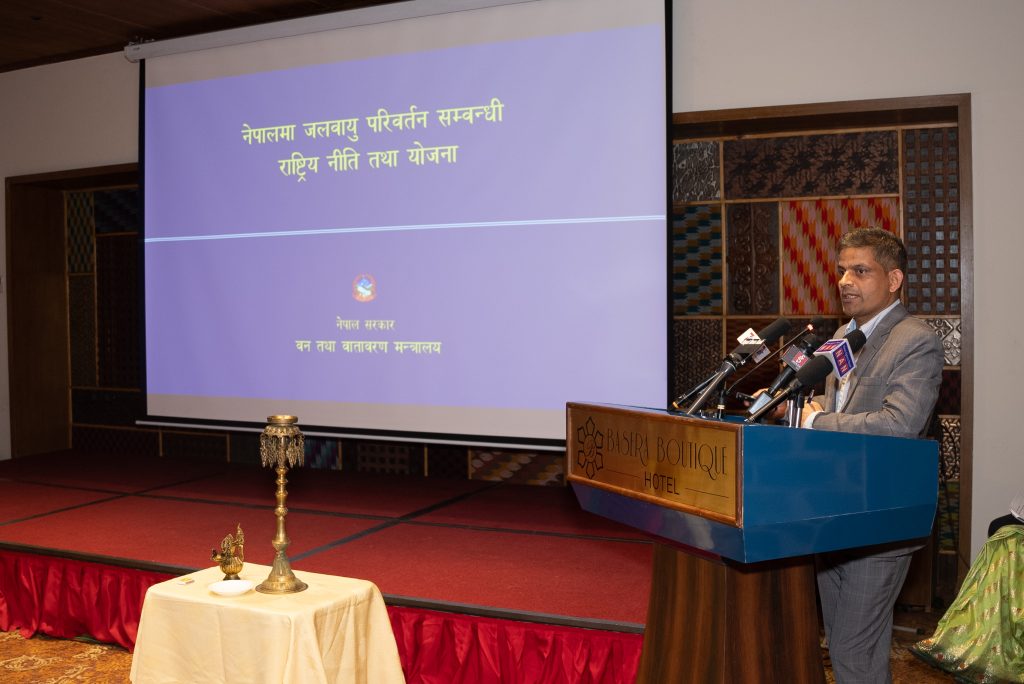
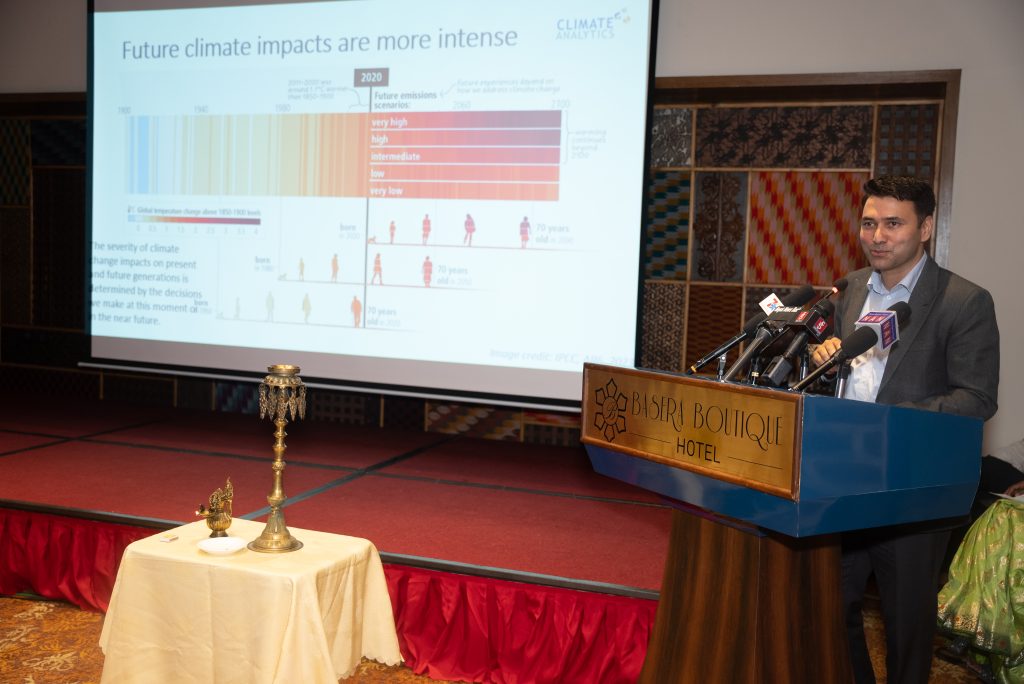
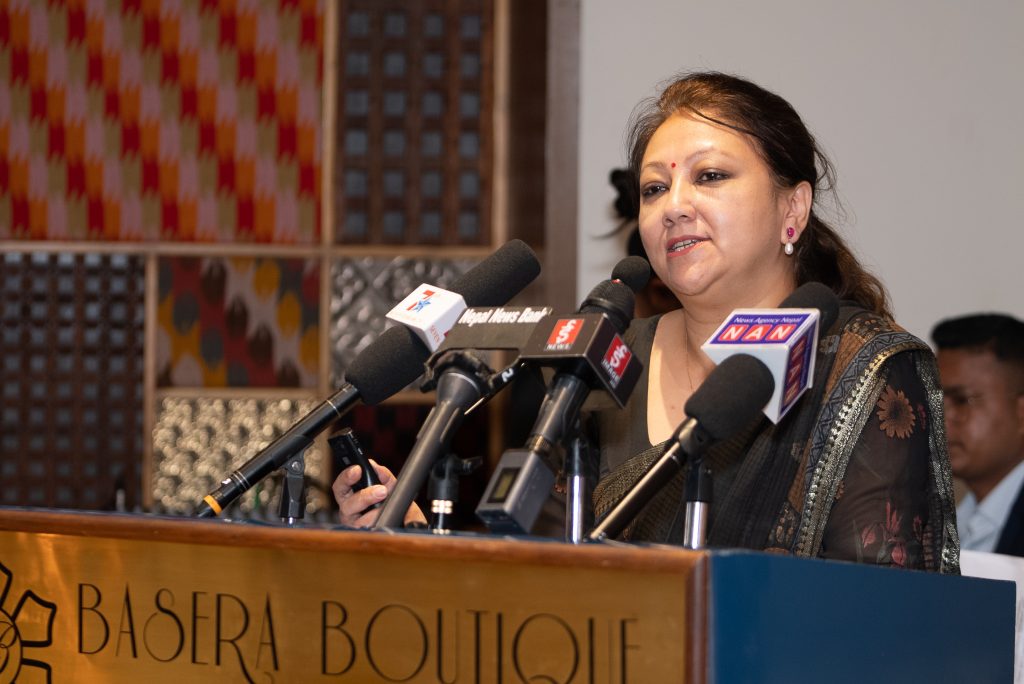
KATHMANDU: On September 1st, Sath Sathai organized a significant conference, titled ‘The Climate Change Challenge: Any Roadmap for Gender Responsive Action?’ in collaboration with the Government of Nepal and UN Women Nepal. This conference served as a platform to address the mounting risks associated with climate change and devise strategies for gender-responsive action.
During the event, Minister of Forest and Environment, Dr. Birendra Prasad Mahato, underscored the necessity for cooperation between various associations and the Nepalese government. He stressed the importance of collective efforts to secure compensation for the adverse effects of climate change, a pressing agenda for Nepal in COP 28.Indira Rana Magar, the Deputy Speaker of the House of Representatives, shed light on the pervasive nature of climate change’s impact, affecting all regions. She urged the youth to play an active role in reducing these risks, with particular attention to safeguarding vulnerable groups, such as women, children, and seniors.
Prajita Karki, Chairperson of Sath Sathai, shared insights into her organization’s ongoing efforts. She emphasized the collective responsibility to protect the Earth for future generations and expressed deep concerns about climate change’s adverse effects on agriculture, warning of an imminent food crisis. Patricia Fernandez, the UN Women Nepal representative, commended Nepal’s commitment to inclusivity and its dedication to addressing climate-related challenges. Buddhi Sagar Poudel, Head of the Climate Change Management Division, emphasized the necessity of collaboration to meet Nepal’s ambitious goal of becoming carbon-neutral by 2045.
Notably, climate expert Sama Shrestha shed light on the disproportionate impact of climate change on women and children, particularly concerning their sexual and reproductive health. Manjit Dhakal, another climate expert, called for urgent global carbon emissions reduction, despite existing differences in approach and commitment among nations. Divya Gurung highlighted a concerning issue—women’s exclusion from decision-making processes, often due to their responsibilities in managing household chores. In contrast, Raju Pandit Chettri underscored the need for collective action to combat the adverse effects of climate change.
The event also featured a panel discussion on ‘Women, Youth, and Climate Change: Risks and Hopes,’ involving prominent figures such as Apsara Lamichhane, Shreya KC, Deepika Das, Sonam Lama Halmo, and Umesh Bala Magar, who provided valuable insights into these critical issues.
Lastly, President Prajita Karki presented a symbolic plant to Chief Guest Birendra Prasad Mahato, symbolizing the commitment to nurture a sustainable and resilient future in the face of climate challenges. This conference exemplified the urgency and importance of addressing climate change with a gender-responsive approach, bringing together experts, policymakers, and activists to collectively chart a path towards a sustainable and equitable future for Nepal and beyond.
No Comments yet!